Camping is a great way to spend time together with your friends and family, and also relax in the nature, in peace and quiet. Along with the incredible experience you can have, it’s also important to know a few camping safety tips and tricks. After all, you’re all in the wilderness and don’t have all the needed items and amenities you have at home, which is why you need to be more careful and cautious.
[the_ad_placement id=”in-text-1-type-r”]For example, to stay warm you may have to build a campfire. If you have children with you, you may have to be extra careful and instruct them not to approach the fire and to stay at a safe distance. This is just a small glimpse on all the advice we will offer you in this article.
Read on for more safety tips and how to stay safe and have a great time all together. You don’t want to ruin your camping adventure, just because you’re not sufficiently prepared for it. Follow the steps and tips we have collected for you to minimize the risk for injuries. And remember that everything you’re used to at home can be significantly more different while in the open.
Safety tips and advice for your camping trip
Before you commit to a trip, spend some time to learn the regulations and laws about starting a fire in the area you want to go camping. There are states and countries where starting a campfire may be partially or fully forbidden. If you don’t follow these regulations you may run the risk of heavy fines and even more serious penalties. To be sure you won’t experience this, prepare by learning more about your desired area for camping.
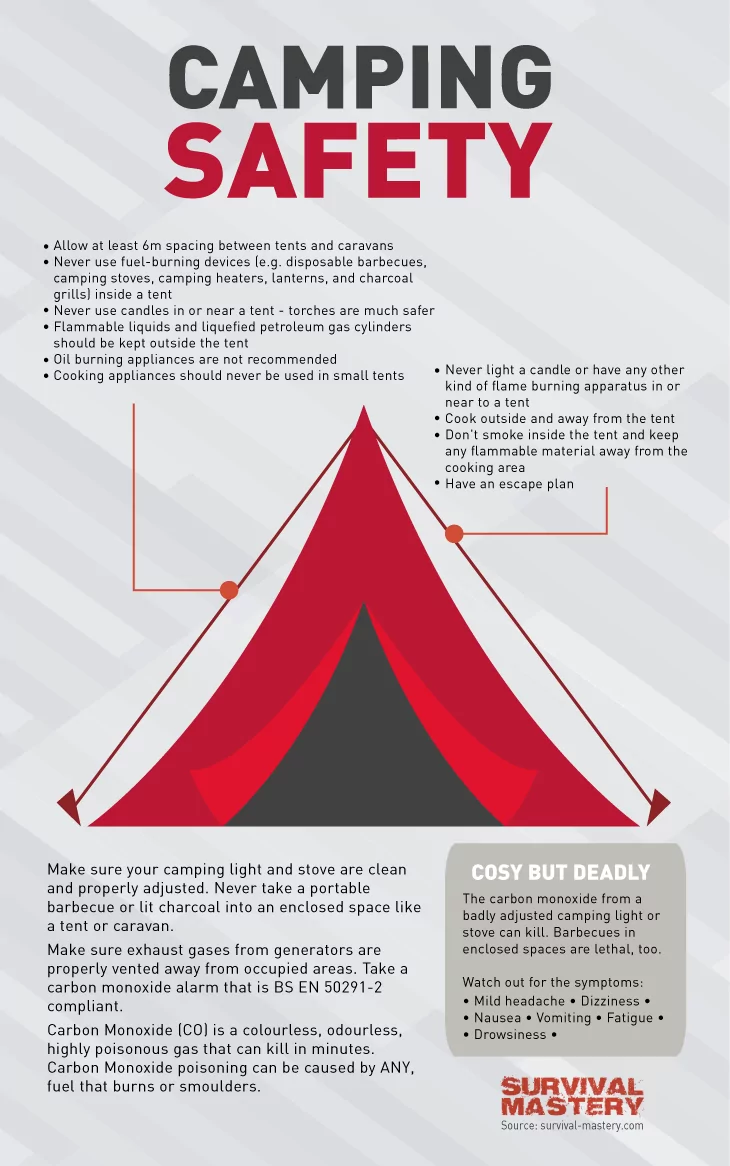
Don’t leave your house without the appropriate items that can help you orient and navigate the area you’ll be camping at. Since you’re out in the wilderness, it is tempting to go exploring the area but if you’re not aware of where you’re going you may lost your way back. This is why it always highly advisable that you first check the area on a map, at home, then prepare all maps that show the area and also prepare a GPS and compass. For the best handheld GPS, see our article on this subject.
Learn how to use the compass with the maps. This knowledge can be invaluable if you get lost. It’s also nice to teach your kids how to do it together.
If you’ll be camping in a public camping site, and there are other co-habitats in the area, you are highly advised to set your campsite before sunset. This is to ensure you will have time and sufficient light to see where you will set the camp, without disturbing the other people and families. This will also help you set the camp quicker and more efficiently thanks to the remaining daylight you will have.
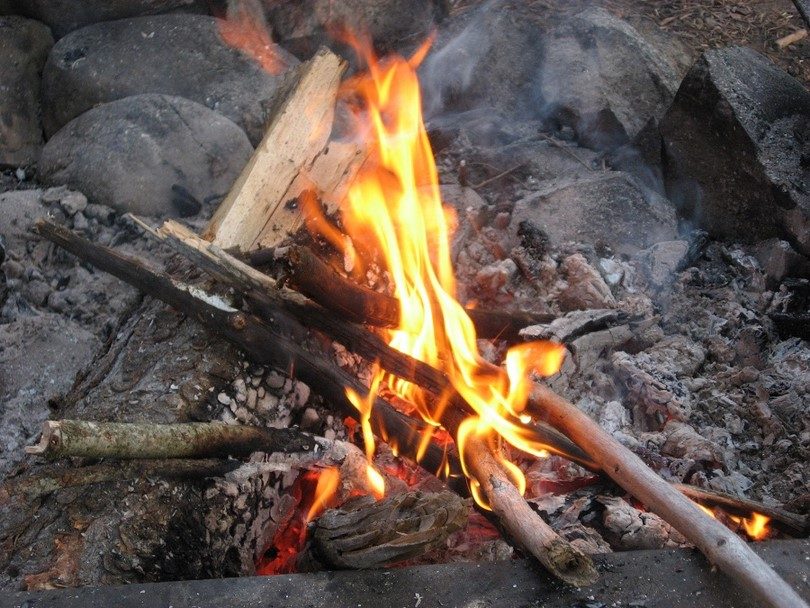
Hikers and campers are often strongly advised against starting fire or even using small compact stoves inside their tent. Not only does having fire inside the tent promote heavy condensation, but you also risk (as you may rightly guess) setting your tent on fire. Accidents happen even if you are completely sure it isn’t possible. There may be fire-resistant tents, but again – stay away from the idea of starting a fire inside your tent.
The only time you may make an exclusion is if the weather outside doesn’t allow for any activity. For example, if there’s a heavy rain or strong snow storm. You can only use a small compact stove to boil some water (because it takes only a few minutes), and you must supervise the stove all the time.
[the_ad_placement id=”in-text-2-type-r”]In addition to the above advice, you are also discouraged to make any fuel canister changes inside the tent, because of risk for leakage of fuel. Do these changes only outside the tent at a safe distance. Also, if you have a few such fuel canisters in your backpack, don’t store them inside the tent, but outside. They may leak or poisonous gases may evaporate.
And while we’re still on the topic of stoves and campfire, try to practice with the stove you have, or try starting a small campfire and see how well you do it. If you think you’re still not skillful enough, practice more until you’re good at it. If you have a barbecue (and not a stove) you can also make sure it’s working fine and is clean enough. Make sure that your barbecue will be positioned on a flat even surface at your campsite, or it may fall over and spill hot oil.
Cooking either on the campfire or on a stove/barbecue is one of the main things people do while camping. This is why you need to focus more attention on that. Along with the above advice, you have to keep matches and fire starters in your backpack or car. It’s best that they are stored in waterproof plastic bags or Altoids can box.
If your matches are wet you won’t be able to start a fire. And if you’re not experienced in starting a fire in the most primitive way, you may end up going to bed hungry. So, to avoid this, make sure you keep them isolated from any moisture or water. Also, it’s best to have waterproof fire starter (two at best) which you have tested. They must work before you go on your journey. It’s also best that they are made on different principles.
Butane fire starters won’t start if it’s too cold, while some other fire starters may not be well water-proofed and insulated. This is why you shouldn’t rely only on one fire starter, keep two or three plus traditional matches.

In addition to that, keep the fire starters and matches well away from children. Make sure these items are inaccessible for yours or nearby kids.
Another thing to consider when setting up your campsite and tents, is that if you have more than 1 tent, you have to keep one tent from another at a minimum distance of 6 meters/20 feet. This minimizes the risk of any tent catching on fire. By following this recommendation you also make sure that if any tent catches fire, it won’t spread to the other nearby tents and endanger other unsuspecting campers.
Don’t forget to keep the campfire well away from the tent(s), or if there is wind, the flames and sparks can reach the nearby tents and set them on fire. Be prepared to smother the campfire if something unexpected happens, by having a shovel nearby, so you can dump soil on the flames. Water buckets will also work if the fire isn’t too big. Also, to be sure that you’re setting up a safe campfire, dig a hole and set up a stone pit. Pits keep the fire contained and minimize significantly the risk of spreading.
During the darker hours you still may need some light. The best advice is to stay away from open flames like candles. Either use headlights and flashlights or torches (as these keep the flame protected). And of course, never use flame-based light inside the tent. Use only flashlight and headlights.
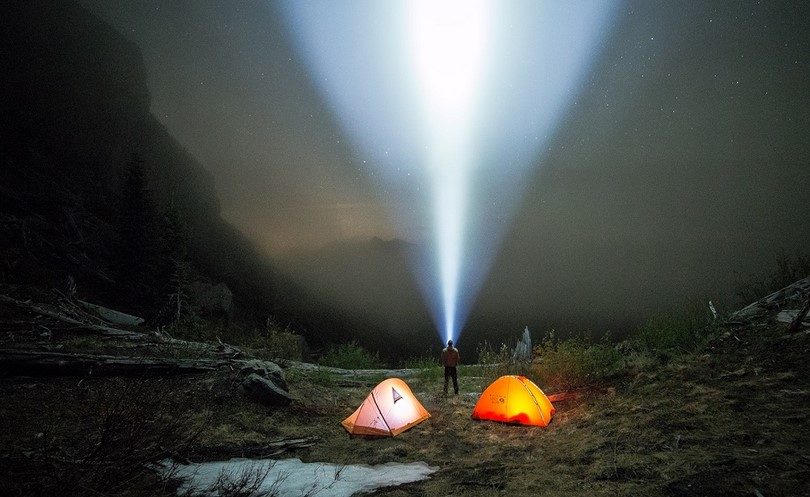
Still on the topic of fire, before you go to bed, never leave the campfire burning and dampen all possible fire-causing lights you have. This advice includes also your stoves, barbecues and gas lamps. Make sure that nothing can catch fire while you’re sleeping and no one is observing your campsite. It’s best to flush a bit of water on the campfire (if it’s a warm and dry night) and keep all other cooking items away from your tent(s).
[the_ad_placement id=”in-text-3-type-r”]It is also important to note that using the above appliances out in the open doesn’t minimize the risk for carbon monoxide poisoning. Even if you have ventilation in your tent or caravan, this doesn’t mean that this can’t happen. In fact, there have been cases of carbon monoxide poisoning in the wilderness, both in caravans and tents.
Make sure that whatever cooking appliance you use, your tent/caravan/car is well ventilated and that you don’t go to sleep without properly refreshing the air inside. If you’re sleeping in the car or caravan, make sure you have a CO detector and that the batteries are new and the alarm works.
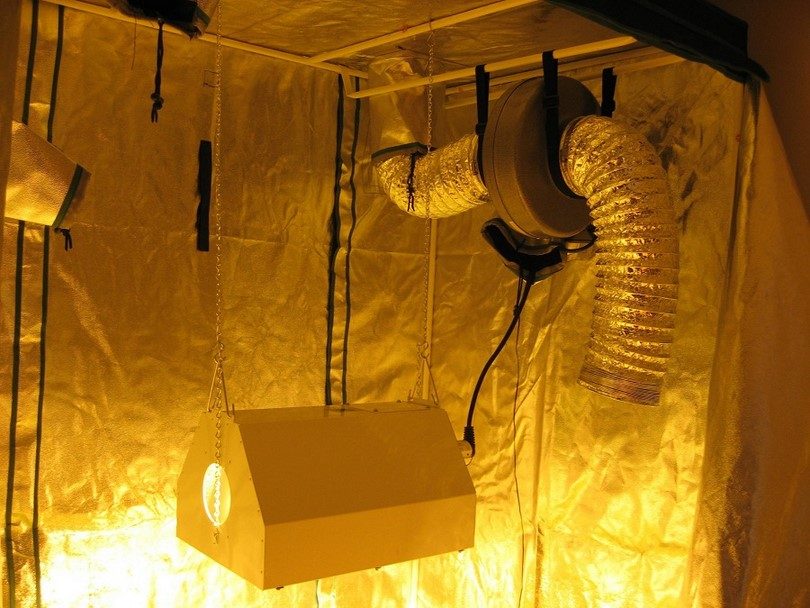
In case the worse happens, that is, a fire starts, you need to immediately leave the tent and don’t waste any time saving your things. Tents tend to burn very quickly and you may catch fire too. In case this happens, don’t run (unless there’s a river or lake very close nearby), because the flames will become stronger the more you move.
The best way is to suffocate it, by rolling on the ground and have someone lay a heavy blanket on you. Thus the fire won’t have access to oxygen and will be smothered. In case the fire continues to grow you need to immediately let a rescue team know about that, so they can come and help smothering the flames.
More safety tips to consider before you go camping
Finding a good place to set up your camp is almost an art. There can be several things to consider before you commit to a final place, in order to be sure you will be safe there.
Don’t set up the camp nearby dry creek beds. These are prone to flooding during heavy rain, including when these are nearby rivers. Creeks can be tempting because they protect you from the wind, but nonetheless avoid them. Dry creeks are also fire-prone and you may even risk being invisible for any rescue team.
If you like to place your tent(s) near a river or lake, make sure that there are no animal trails reaching the river. This is a clear indication that animals tend to go drink water from that river/lake. You may disrupt their natural habits and pattern. There is of course also a risk that you run into a bear or other predator, like wolfs and bobcats. See our article on how to avoid wild animal attacks, it might save you one day
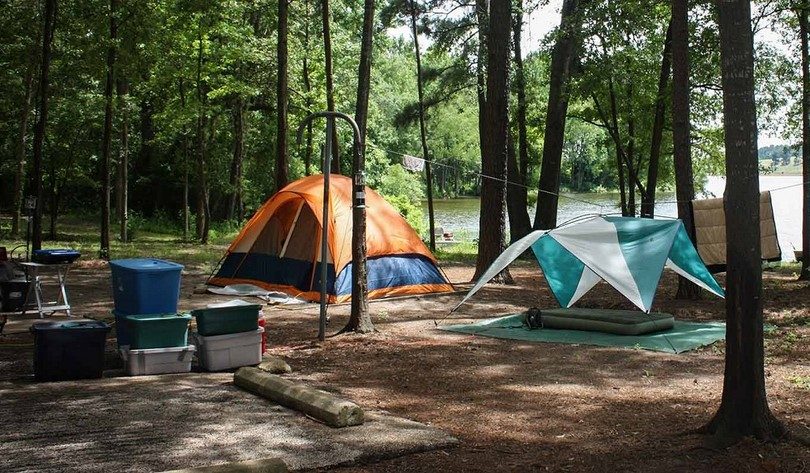
It may be intuitive enough, but don’t set up your campsite on a slope, even if it’s small enough. It’s easy to let some of your things roll down the slope and you can lose some important items like that. If you do want to have your campsite on a slope, make sure that there is no risk of avalanches (during the winter) or rocks falling (summer and winter).
Stay away from any type of trail which doesn’t look made of hikers. Also, stay away from ant hills, and not just several meters/feet away, but much more than that. Consider them a risky place and find a better one.
Also, don’t set camp nearby stagnant water. Mosquitoes tend to love stagnant water and lay their eggs there, so you may not only have an unpleasant camping experience, but also risk catching a nasty disease.
Don’t camp under trees, especially if these are lonely trees in vast empty fields. If the weather tends to be unstable and there’s a lot of heavy rain and thunderstorms, you virtually risk your life. Also, if the wind is too strong, branches may fall on your tent. In addition, don’t set up your campsite on an entirely empty field during thunderstorms. You risk a lightning strike.
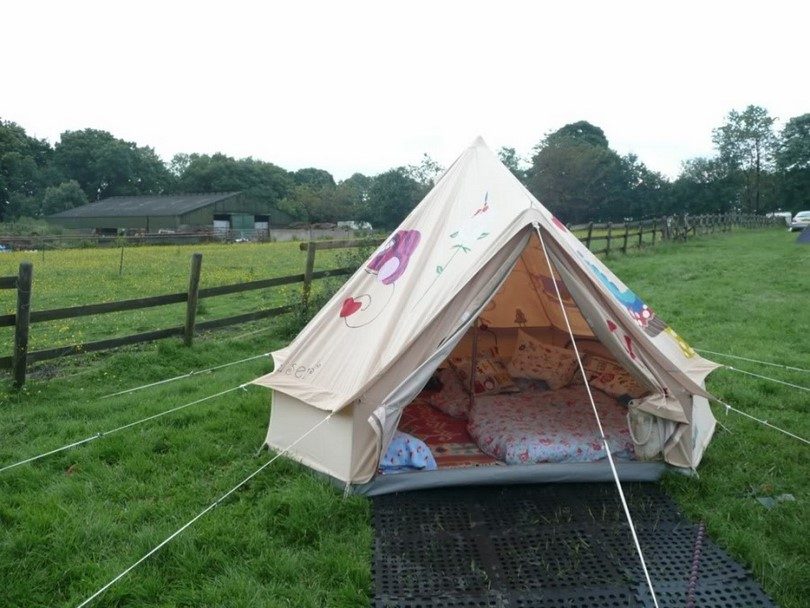
Consider well the area where you’re going to spend some time. Learn about what animals and insects are often found there and also find out how to safely avoid them, including what to do if you still face a wild animal/insect/reptile.
Many people tend to immediately run for their life if they see a snake or other wild animal. Sometimes this isn’t really a good idea. Wolves for example are tempted to hunt you if you run, but if you stand still and act aggressively – wave your hands or talk loud and aggressive – a lone wolf won’t attack you, as your behaviour would be unnatural, and it will back off.
Bears are also tempted to hunt you down. If you see a brown bear (not a grizzly), laying down and pretending to be dead usually works, as bears are not interested in dead creatures. For more details, read further on tactics how to stay safe if you encounter a wild animal.
Also, if there are poisonous animals in the area where you go hiking, you’re either discouraged to camp there in the first place, or at least, prepare anti-dotes in case you are bitten. And remember, backing off slowly is the best way to stay safe, even if you see a snake or a scorpion. Of course, this is a vast topic, and you need to read further for more details.
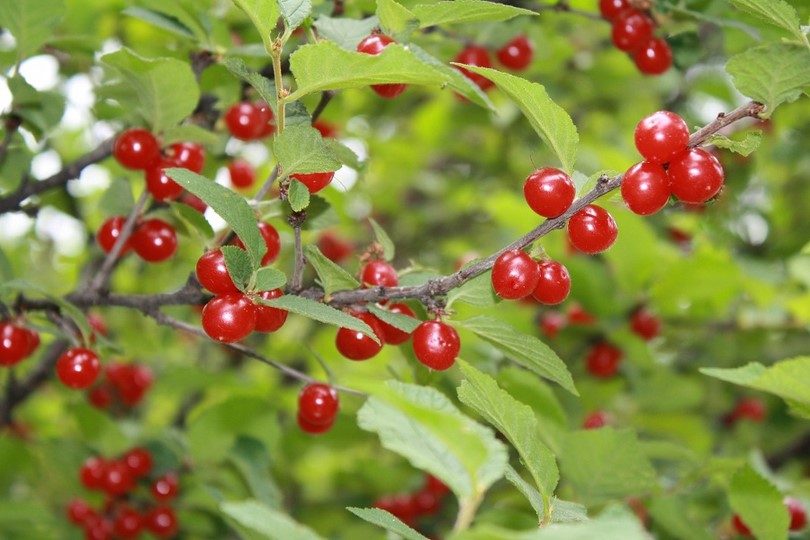
Encountering animals is not your only concern, though. What if you see a delicious-looking red berry? You may be immediately tempted to pluck and eat it. But would that be safe? Most often, wild fruits, berries and herbs aren’t really edible and there is a high risk some of these may be poisonous. You should be a plant expert to be entirely sure which is edible and which isn’t.
Furthermore, don’t feed any wild animal, even if it’s no danger to you. Feeding them may attract other animals and some may not be welcome to your campsite.
Also, on the topic of food, don’t drink water from lakes and rivers unless you have a water filtration or purification system with you. Otherwise, prepare all the water you need beforehand. Rivers and lakes on low altitudes may be well contaminated with lots of viruses, protozoa, organisms and cysts. These can be dangerous to your health and you don’t want to take any chances on that, especially if you have kids in with you. For the best water survival filter that’s affordable and good value for the money, see our link for it.
In case you have run out of your water stores and you don’t have filtration or purification system, your only choice is to boil the water. This is an old method that usually works and will render the water safe to drink.
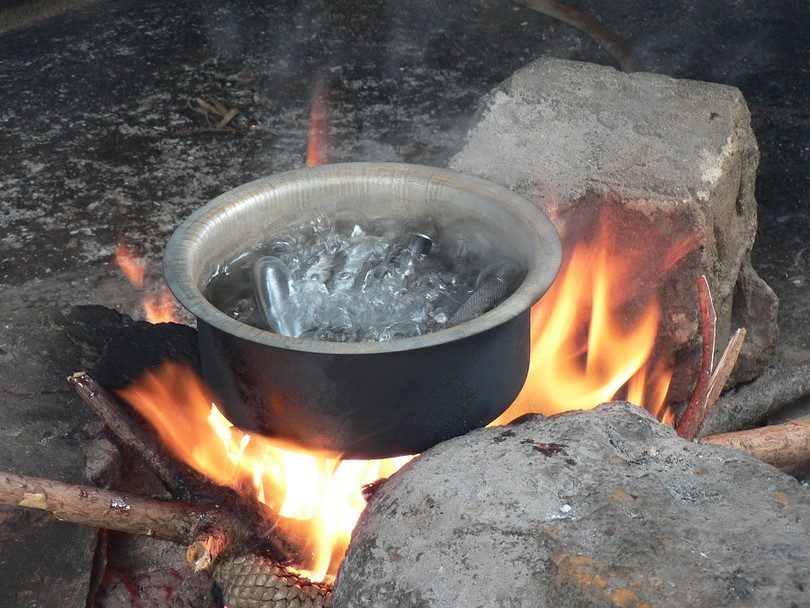
Another very important advice is to always stay together. It’s very easy to be tempted to go adventurous and go exploring the area alone. Even if you’re an adult or a kid, there is a huge risk of getting lost.
Of course, as long as you have charged phones, you can call your family and navigate them on how to find you, but in case, you have no contact to your friends and family, the risk isn’t worth it. Besides, it is much more fun to go together and also, let someone else know where you’re going. Make sure you can contact them and they you, in case something happens.
And finally, before you leave for your campsite, let someone close to you and your family know where you’re going. People at home can help you by contacting rescue teams and letting them know, if they lose contact with you. Contact with the outer world is your ultimate safety measure.
Before embarking on your special trip, take a look at the camping essentials you must have to experience camping at its best.



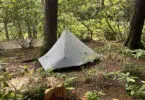
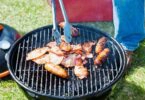
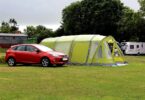
I have always believed that the first step in planning an outdoor adventure is planning. Plan things carefully and then plan for the worst. It’s much better to have a little extra weight for things you may never use,
One thing to watch out for when camping, especialy when it is summer time, are snakes. Always close your tent when leaving the camp site.
Hi. I agree with you, the camping site could make or break the camping experience. Also, eating anything just because it looks delicious isn’t best practice when camping out.
Hi there, so this is a camping and survival question: whenever I cook or boil water over a fire I find it difficult to have complete control over the cooking pot/pan because it’s not set reliably. I did finally come up with a makeshift grate and have just been propping it up with rocks… is there a better alternative? So often the rocks aren’t all the same height so I need multiple stacked on top of each other, or I have to add wood to the fire and it knocks over the rocks. Thanks for any suggestions!
Tent is like a home, only even more fragile.
I always do my dishes as far away from the tent as possible and throw the food really far away in order not to attract wildlife.
Never, ever bring lanterns and lighters and similar fire sources near a tent, especially not at night.
Digging a trench around the tent is another good tip. It will help drain rain water and any other running water. Keeping the clothes and tent dry is essential.
Make sure you do not miss the best camping tips and tricks.
Thank you Brad for sharing your opinion with us.